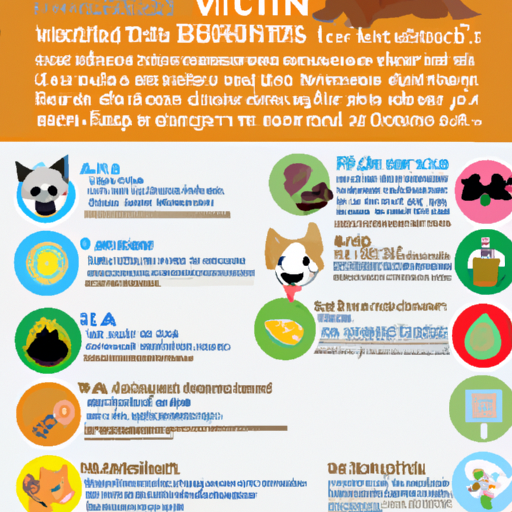As a devoted caregiver, you certainly want the best for your furry companion. You are willing to go the extra mile to ensure they are healthy and happy. One question you might be grappling with is: What vitamins are good for dogs? This piece will shed light on this subject, guiding you to make informed decisions about your pet’s nutrition.
H2: Vitamin A – For Growth and Reproduction
Vitamin A is essential for your dog’s growth, fetal development, immune function, and skin and coat health. However, you must be cautious, as too much Vitamin A can lead to toxicity.
Here’s a list of food rich in Vitamin A:
- Liver
- Fish oils
- Carrots
- Spinach
- Pumpkin
H2: B Vitamins – For Energy Production And More
B vitamins are a group of vitamins that play a vital role in your dog’s health:
- B1 (Thiamine): Essential for the metabolism of carbohydrates.
- B2 (Riboflavin): Necessary for energy production, fat storage, and amino acid metabolism.
- B3 (Niacin): Critical for good skin health and proper circulation.
- B6 (Pyridoxine): Aids in glucose generation, red blood cell function, hormone regulation, and more.
You can find these B vitamins in meat, whole grains, and legumes.
H2: Vitamin C – For Immunity Booster
Contrary to humans, dogs can produce vitamin C in their bodies. However, during times of stress, their bodies may not produce enough, and supplemental Vitamin C could be beneficial. Foods like sweet potatoes and apples can provide Vitamin C.
H2: Vitamin D – For Bone Health
Vitamin D is crucial for bone growth and development. This vitamin helps regulate calcium and phosphorus absorption. However, excess Vitamin D can lead to toxicity.
| Food Source | Vitamin D Content |
|---|---|
| Salmon | High |
| Tuna | Medium |
| Egg yolks | Low |
H2: Vitamin E – For Skin Health
Vitamin E is an antioxidant that can help defend the body against oxidative damage. It’s also important for fat metabolism and eye health. Good sources of Vitamin E include leafy green vegetables and seeds.
Frequently Asked Questions
Q: Can I give my dog human vitamins?
A: Not all human vitamins are safe for dogs. Always consult with a veterinarian before giving your dog any supplements.
Q: How can I tell if my dog has a vitamin deficiency?
A: Symptoms might include dull coat, lethargy, or other changes in behavior. A vet can confirm through blood tests.
Q: Can dogs get too many vitamins?
A: Yes, certain vitamins can cause toxicity if given in excess. Always adhere to the recommended dosage.
Your dog’s wellness is a reflection of your careful and thoughtful caregiving. By understanding the role of vitamins in your dog’s health, you’re taking proactive steps to ensure their well-being.



